This article was co-authored by Zora Degrandpre, ND. Dr. Zora Degrandpre is a Natural Health Doctor and Licensed Naturopathic Physician in Vancouver, Washington. She is a grant reviewer for the National Institutes of Health and the National Center for Complementary and Alternative Medicine. She received her ND from the National College of Natural Medicine in 2007.
wikiHow marks an article as reader-approved once it receives enough positive feedback. This article received 11 testimonials and 88% of readers who voted found it helpful, earning it our reader-approved status.
This article has been viewed 354,810 times.
People with dentures should disinfect them nightly and soak them to remove calculus and stains. If there are no stains or calculus on your dentures, dentists recommend only soaking the dentures in water every night.[1] However, if you start to see stains and buildup, a part water/part vinegar solution can be just as effective as commercial denture cleaner for softening the buildup for removal. The acetic acid in vinegar has proved effective at cleaning tartar. It is a good idea to use a vinegar solution regularly and use a bleach solution for deeper disinfecting treatments. It is recommended that you only use the vinegar solutions for full dentures, instead of partial dentures.
Steps
Preparing the Vinegar Solution
-
1Find a container large enough to fit your dentures. Look for a glass, a cup, a bowl, or a washable food container to pour the vinegar solution into. Make sure it is big enough for your dentures to be submerged. [2]
- Try to find a glass container to avoid any breakdown the vinegar might cause in plastic or other permeable materials.
-
2Purchase distilled white vinegar. Find white vinegar to use in this cleaning solution. Cooking or flavored vinegars might transfer flavors to your dentures, creating an unpleasant taste.
- You can find bottles of distilled white vinegar for relatively low prices at most grocery stores.
- Avoid apple cider vinegar, red wine vinegar, balsamic vinegar, and any other vinegar that is not distilled white.
Advertisement -
3Mix one part water with one equal part vinegar. Into the container you have found to soak your dentures in, mix a solution that is 50% vinegar and 50% water. Make sure the mixture has enough volume to cover the submerged dentures.
- You can work this into your evening bedtime routine by pouring in the vinegar and water as you are washing your face or changing into night clothes so that all you have is drop in the dentures on your way to bed.
-
4Ask your dentist before using vinegar. Before starting a vinegar routine for your dentures, get the ok from your dentist. Partial dentures, for example, can be adversely affected by long-term use of vinegar as a cleaning solution.
- This is because the vinegar can act as a corrosive solution on the metal parts of the partial dentures.
Soaking the Dentures
-
1Soak the dentures for 15 minutes a day. A good rule of thumb for partial dentures is to soak them in the vinegar solution for only 15 minutes once a day. This short amount of time will still soften buildup on the dentures without damaging the metal clasps on the partial dentures.[3]
-
2Place the dentures in the vinegar overnight. If you notice heavy deposits of tartar (called calculus) starting to congregate on your dentures, it is time to start soaking them overnight in the denture solution. The solution will weaken tartar compounds.
- Remember not to do overnight in vinegar with partial dentures unless you get the green light from your dentist.
- If you do not see tartar buildup on the dentures, stick to an overnight vinegar soak.
- Some dentists recommend that if you are going to do an overnight soak on a regular basis, only use a solution that is 10% vinegar mixed with water, and only for 8 hours.[4]
-
3Check for softened tartar and deposits. In most cases, the vinegar won’t actually dissolve the tartar, but it will soften it so that you can brush it away the next morning. The vinegar won’t remove stains on its own either, but it will make it much easier for a denture brush to do the work.[5]
Cleaning the Dentures
-
1Soak your denture brush in a bleach/water solution. You should soak your denture brush in a half bleach/half water solution once a week to prevent the growth of bacteria. Rinse the brush thoroughly before using it on your dentures.
-
2Remove the dentures from the vinegar. The next morning, bring the container over to the bathroom sink and fill it with water. Remove the dentures from the vinegar solution with your hands, making sure to keep the dentures over the water. This water acts as a cushion in case you drop the dentures while handling them.
-
3Brush the dentures with your denture brush. Now use the clean brush to rub off stains and calculus buildup on the dentures. Brushing the dentures after an overnight vinegar soak will also work off plaque, food particles, and bacteria.
- If the stains don’t come off after the first overnight soak, repeated soaking should eventually get all the stains off.
- If stains won’t come off no matter how much you soak your dentures, talk to your dentist (this includes coffee stains, yellowing, any sort of stain).
- Scrub every surface of your false teeth, both inside and out, with either a denture brush or a toothbrush. Make sure the brush is wet when you do this, and that you use a light brushing stroke.[6]
-
4Rinse the dentures thoroughly. After cleaning the surfaces of the dentures, it is time to rinse them off. Rinse the dentures repeatedly until both visible stains and tartar, as well as all traces of vinegar scent, are rinsed away. Rinsing helps wash away any debris and get the vinegar flavor off the dentures.[7]
-
5Pour out the vinegar solution. After you are done soaking your dentures, pour out the solution. Do not re-use the vinegar solution as it now contains debris from stains, tartar, bacteria, and whatever else was on your dentures.
Warnings
- Never soak partial dentures or dentures with a soft lining in a vinegar and water solution. This can be corrosive to the metal. Ask your dentist what product or solution will work best.⧼thumbs_response⧽
Things You'll Need
- Distilled white vinegar
- Water
- Denture brush
- Water glass/bowl
References
- ↑ http://www.dentalhealthpress.com/how-to-take-care-of-dentures
- ↑ https://chinookdentureclinic.com/how-to-remove-tartar-from-your-dentures/
- ↑ http://www.dentalhealthpress.com/how-to-take-care-of-dentures
- ↑ http://www.animated-teeth.com/false-teeth/a-homemade-denture-cleaners.htm
- ↑ http://www.dentalhealthpress.com/how-to-take-care-of-dentures
- ↑ http://www.animated-teeth.com/false-teeth/a-denture-care-brushing.htm
- ↑ http://www.animated-teeth.com/false-teeth/a-denture-care-brushing.htm
About This Article
To clean dentures with vinegar, start by mixing equal parts water and distilled vinegar. Next, submerge your partial dentures into the solution for 15 minutes to soften any build up without damaging the metal clasps. After you remove your dentures from the vinegar mixture, brush them to remove any tartar. Repeat this process daily to keep your dentures clean. If you notice heavy deposits of tartar on your dentures, ask your dentist if you can soak them overnight in the vinegar solution. Otherwise, use a denture cleanser for longer, more extensive cleaning. To learn how to best rinse your dentures after cleaning them, keep reading!
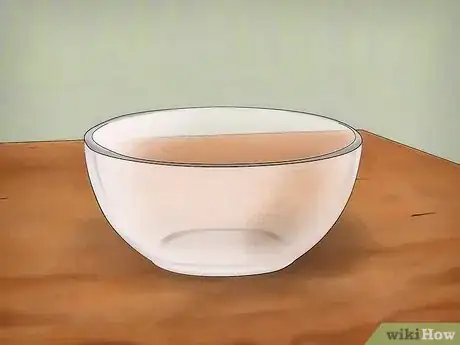
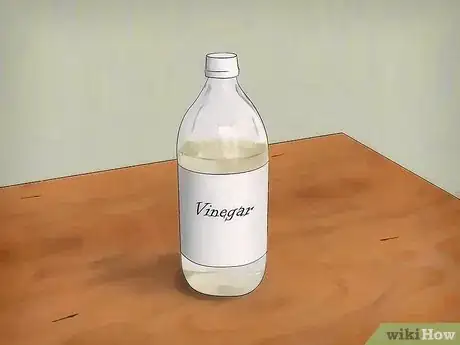
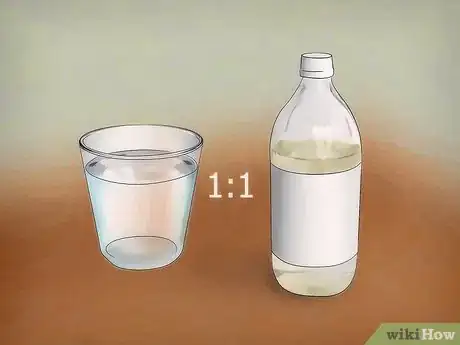

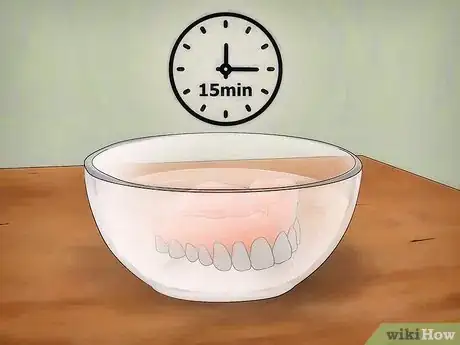
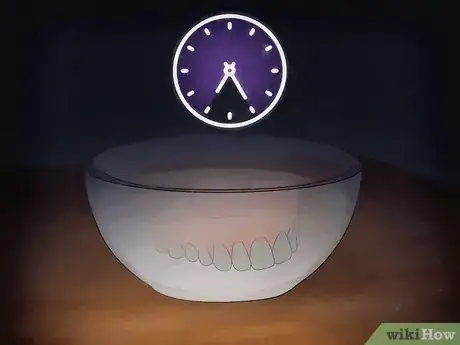
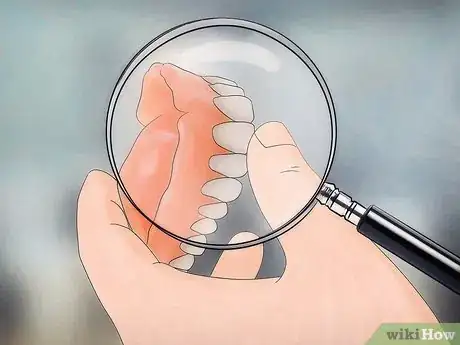
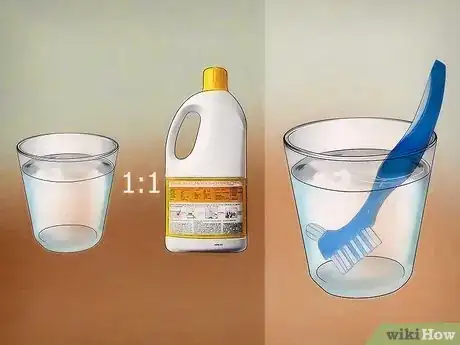
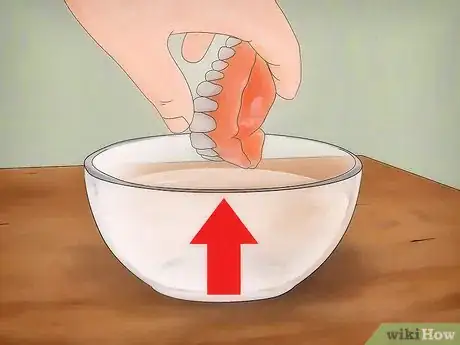
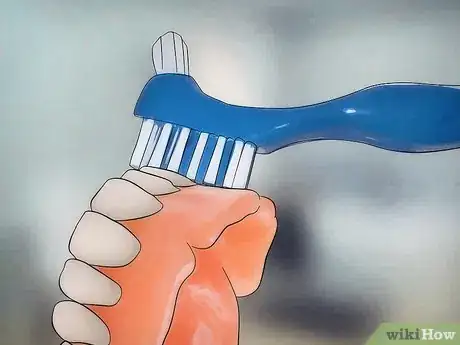
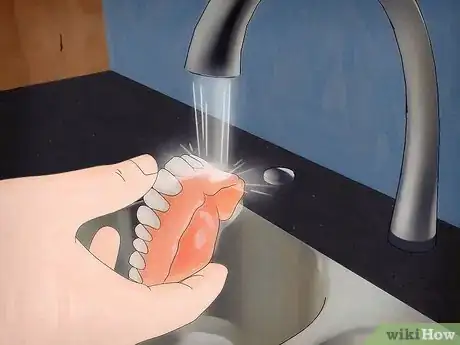
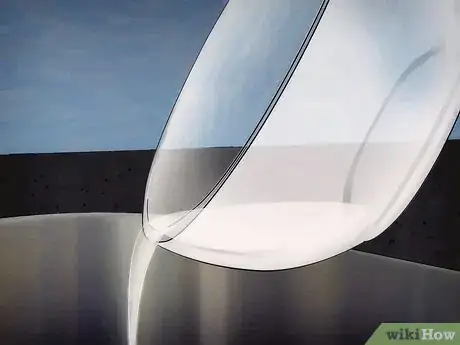
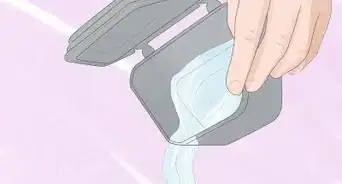
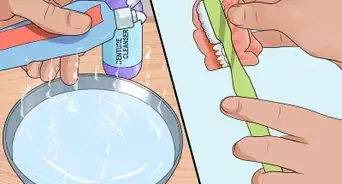
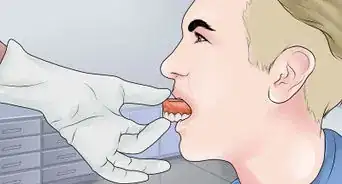
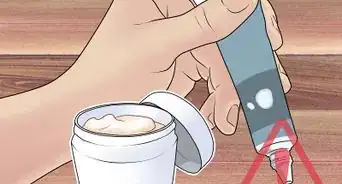

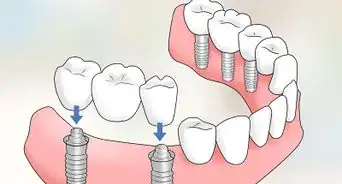
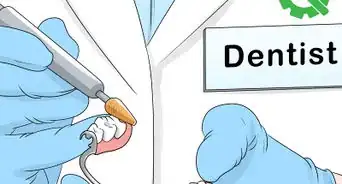
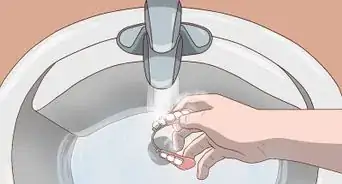
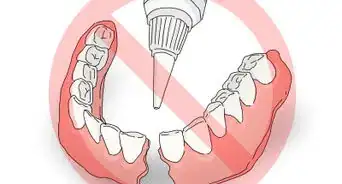
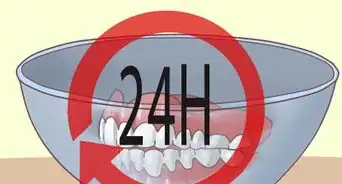










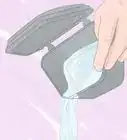
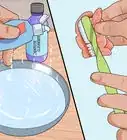
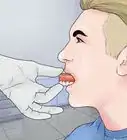
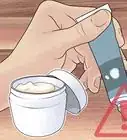



































Medical Disclaimer
The content of this article is not intended to be a substitute for professional medical advice, examination, diagnosis, or treatment. You should always contact your doctor or other qualified healthcare professional before starting, changing, or stopping any kind of health treatment.
Read More...